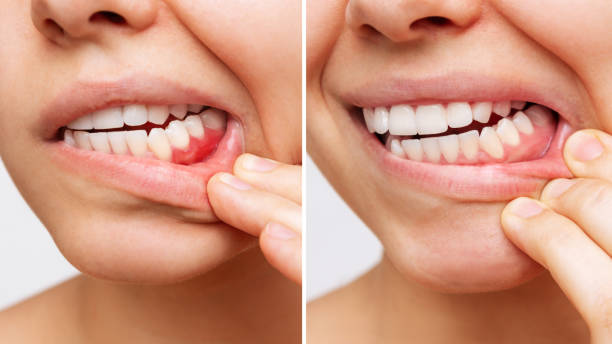Tips to Recover Easily from Periodontal Treatment

Strong 8k brings an ultra-HD IPTV experience to your living room and your pocket.
Periodontal treatment, also known as gum disease treatment, is essential for maintaining the health of your gums and teeth. It addresses a range of issues, from gingivitis (early gum disease) to more severe forms of periodontitis, which can lead to tooth loss if left untreated. Periodontal treatments, including scaling and root planing, gum surgery, and sometimes bone grafting, can be highly effective in reversing gum disease in Cape Coral, but they also require some recovery time to ensure the best results.
Post-treatment care is crucial to prevent complications and ensure a seamless recovery. Whether you've had non-surgical or surgical periodontal treatment, following a proper recovery routine will help you heal quickly and comfortably.
Here are some practical tips to help you recover easily and effectively from your periodontal treatment.
1. Follow Your Dentist’s Aftercare Instructions
Your dentist or periodontist will provide you with a set of aftercare instructions specific to the type of treatment you underwent. These instructions are tailored to promote healing and minimize the risk of complications. It is essential to follow these directions closely, as they may include guidelines on medication, dietary restrictions, and oral hygiene routines.
For example, if you've had scaling and root planing, your dentist may recommend using a special mouthwash or antimicrobial rinse to prevent infection. If you've undergone gum surgery, they may suggest avoiding certain foods or beverages, especially those that are hot or acidic, for a few days.
2. Manage Swelling and Discomfort
Swelling and discomfort are common after periodontal treatment, especially if you’ve had more invasive procedures such as gum surgery. To manage swelling, apply a cold compress to your face for 15-20 minutes at a time during the first 24 hours after treatment. This can help reduce inflammation and provide some relief. Additionally, elevating your head while resting can further minimize swelling.
For discomfort, over-the-counter pain relievers, such as ibuprofen, can be effective in managing mild to moderate pain. However, always consult your dentist for pain management recommendations, as they may prescribe stronger medications or recommend specific dosages tailored to your condition.
3. Eat Soft Foods and Avoid Hard or Sticky Items
Immediately after periodontal treatment, your gums may be tender or swollen, and eating hard, crunchy, or sticky foods can irritate the treated area or cause pain. Stick to soft foods for the first few days, such as soups, smoothies, mashed potatoes, and yogurt. Avoid foods that are excessively hot or cold, as temperature extremes can cause discomfort in your healing gums.
Also, avoid chewing directly on the treated areas. If your dentist recommends, you can use a soft toothbrush and gently brush your teeth to avoid irritating the gums further.
4. Keep Your Mouth Clean, but Be Gentle
Good oral hygiene is crucial for proper recovery after periodontal treatment, but it’s essential to be gentle. After scaling and root planing, your gums may be sensitive, so be sure to follow your dentist’s instructions on brushing and flossing. You may be advised to avoid flossing for a few days to prevent injury to the healing gums. When brushing, use a soft-bristled toothbrush and avoid scrubbing too hard. A gentle brushing technique will help you maintain cleanliness while minimizing irritation to the gums.
If you have stitches, your dentist will let you know when it’s safe to resume normal brushing and flossing habits. Using an antimicrobial mouthwash, as prescribed, can help keep bacteria at bay and speed up the healing process.
5. Stay Hydrated and Rest
Hydration plays a crucial role in your recovery, as it helps maintain a moist environment in your mouth, which can encourage healing. Drink plenty of water throughout the day, especially after meals, to rinse away any food particles that may irritate the gums. Avoid sugary or acidic drinks, as they can contribute to bacteria growth and increase the risk of infection.
Rest is equally important. Give your body the time it needs to heal by avoiding strenuous activities for the first 24-48 hours after treatment. Physical activity can increase blood flow, which could contribute to additional swelling and discomfort. Take it easy during the first few days, and give your body the chance to focus on recovery.
6. Avoid Smoking and Alcohol
Smoking and alcohol can hinder the healing process after periodontal treatment. Smoking decreases blood flow to the gums and can reduce the effectiveness of your immune system, making it harder for your body to fight off infections. Alcohol can also impair healing and interact with medications you may be prescribed, such as antibiotics or pain relievers. For the best recovery results, avoid smoking and drinking alcohol for at least a few days after your treatment, or longer if your dentist recommends it.
7. Monitor for Complications
While most recoveries from periodontal treatment are smooth, it’s important to monitor your healing process for any signs of complications. Common post-treatment issues include excessive bleeding, severe pain, or signs of infection (such as increased redness, swelling, or pus). If you experience any of these symptoms, contact your dentist immediately to ensure prompt treatment and avoid further complications.
8. Attend Follow-Up Appointments
After your periodontal treatment, your dentist will likely schedule a follow-up appointment to monitor your progress and ensure that healing is occurring as expected. It’s essential to attend these follow-up appointments so your dentist can check for any signs of complications and ensure that the treatment was successful. Your Cape Coral dentist may also provide additional instructions for maintaining oral health in the long term and preventing future periodontal issues.
Conclusion
Recovering from periodontal treatment doesn’t have to be difficult, but it does require attention and care. By following these tips, such as following your dentist’s instructions, managing discomfort, and maintaining good oral hygiene, you can ensure a smooth recovery and enjoy the long-term benefits of a healthier mouth. Remember, your dentist is your best resource throughout the recovery process, so don’t hesitate to reach out with any concerns or questions. With proper care and attention, you’ll soon be on your way to a fully healed smile.
Note: IndiBlogHub features both user-submitted and editorial content. We do not verify third-party contributions. Read our Disclaimer and Privacy Policyfor details.


